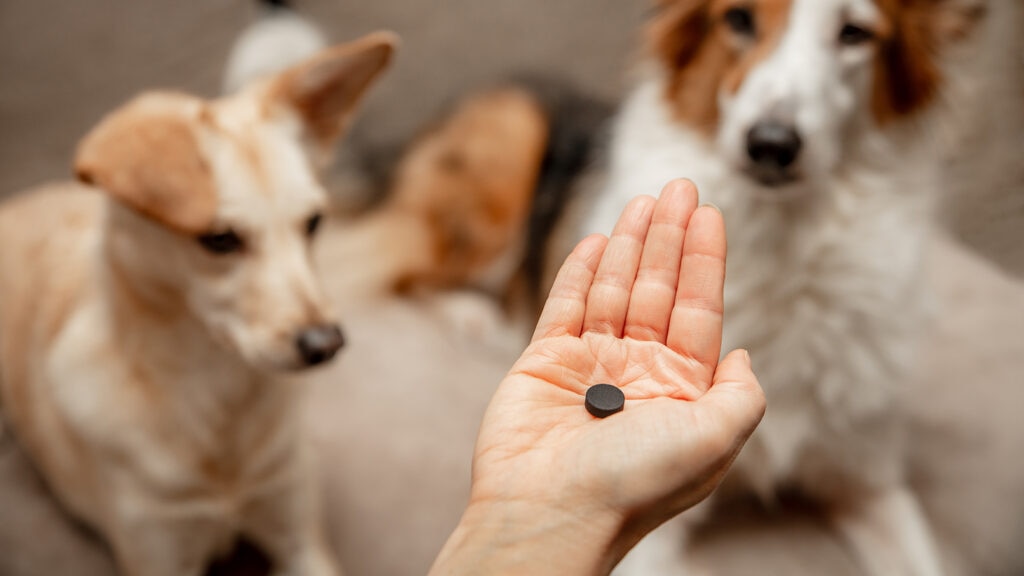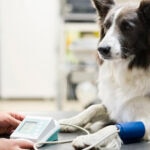What Is Activated Charcoal for Dogs? Does My Dog Need It?

Photo by miriam-doerr/iStock/Getty Images Plus
Activated charcoal is sometimes used in veterinary emergencies to help treat poisoning in dogs, but it doesn’t work for every situation. While it can be incredibly effective for certain toxins, there are limits to when and how it should be used. Some toxins don’t respond to it at all, and sometimes it can do more harm than good.
Here’s what Fleur Jones, DVM, ER vet at VEG ER for Pets in Clearwater, Florida; and Veronica Villanueva, DVM, medical director at VEG ER for Pets in Anaheim Hills, California, want you to know about using activated charcoal for dogs.
Key Takeaways
- Activated charcoal can be an effective emergency treatment for certain toxins in dogs, but it should be given only under veterinary supervision.
- Activated charcoal doesn’t work for all toxins, and it can be dangerous if given incorrectly.
- Even though you can buy activated charcoal for dogs over the counter, you should never use it without guidance from a veterinarian.
What Is Activated Charcoal for Dogs?
Activated charcoal is a fine black powder that’s made from heating carbon-rich materials like wood, coal, or coconut shells. This process creates the charcoal, which is porous and acts like a sponge—it can attract, absorb, and hold onto substances.
When a dog swallows activated charcoal, it binds to certain toxins in the digestive tract to help keep them from being absorbed into the bloodstream. Instead, they get eliminated from your dog’s body through waste in your dog’s stool.
When using activated charcoal, timing is critical. The goal is to bind the toxins while they’re still in the stomach, before they move through the rest of the digestive tract and get into the blood. Ideally, activated charcoal is given within five minutes of your dog ingesting a toxin, but it can still be effective up to six hours after certain toxins are consumed.
That said, even when given right away, activated charcoal isn’t effective for all toxins.
Activated charcoal can be effective for toxins such as:
- Ibuprofen and other NSAIDs
- Acetaminophen
- Chocolate
- Marijuana
- Some rodenticides and insecticides
- Some prescription medications, such as antidepressants
- Activated charcoal does not bind well to:
- Alcohol
- Xylitol
- Bleach
- Antifreeze
- Batteries
- Gasoline
- Heavy metals (such as lead or iron)
In most dog poisoning cases, activated charcoal is just one part of a bigger treatment plan that includes IV fluids, supportive medications, and continuous monitoring. That’s why it’s important to get a vet’s guidance before trying to treat your dog yourself.
Where Can I Buy Activated Charcoal for Dogs?
If you’re wondering where to buy activated charcoal for dogs, it’s available over the counter in several forms, including capsules, powders, and gels. There are well-known brand names, like ToxiBan, which is formulated for veterinarians, as well as lesser-known products made by companies that may not hold themselves to strict quality control guidelines.
But while you might be able to buy activated charcoal in pet stores or online, that doesn’t mean you should. Both Dr. Jones and Dr. Villanueva strongly advise against using store-bought activated charcoal without first consulting a veterinarian.
The over-the-counter activated charcoal options aren’t comparable to what’s available in a veterinary hospital, says Dr. Jones, adding that they might not be properly dosed and could pose serious risks if given incorrectly or for incompatible toxins.
In certain situations, your vet may choose to give your dog a combination activated charcoal product with an additional ingredient that your dog may need to recover from the poisoning.
Can I Give My Dog Activated Charcoal?
Do not give your dog activated charcoal unless a veterinarian specifically recommends it. While it can be a useful tool in some cases, giving it at home without professional guidance can be dangerous.
Dr. Villanueva adds that inappropriate use could also delay necessary and appropriate care, which can make the situation worse.
It’s not safe to give your dog activated charcoal if:
- Your dog has already vomited extensively or is lethargic
- Your dog is dehydrated
- Your dog recently had abdominal surgery of their digestive tract
- Your dog could have an obstruction in their digestive tract
- The toxin isn’t one that binds well to charcoal
- Too much time has already passed since your dog ate the toxin
- Your dog is showing neurological symptoms (such as seizures or collapse)
There’s a real risk of aspiration if the dog is vomiting or lethargic, says Dr. Jones. That means the charcoal could enter the lungs, potentially causing serious complications such as aspiration pneumonia, which is a lung infection that can lead to breathing difficulties.
Instead, you should take your dog to the emergency vet immediately. If you know or even suspect your dog has ingested something toxic, don’t wait for symptoms.
Even if your dog seems fine, Dr. Jones says toxins such as ibuprofen, xylitol, or grapes can cause internal damage hours or even days before physical signs appear.
How Much Activated Charcoal Can a Dog Have?
With any medication, the safest way to know the proper dose for your dog is to ask your veterinarian.
If your vet does recommend it, the right dosage of activated charcoal for dogs depends on the specific toxin, the timing, and the dog’s condition.
That said, a typical dosage for dogs usually falls between 1 and 4 grams per kilogram of body weight. In some cases, it can go up to 5 grams per kilogram.
That means a 22-pound (10-kilogram) dog might receive 10–40 grams of charcoal, while a 75-pound (34-kilogram) dog could need 34–136 grams.
What Are the Side Effects of Activated Charcoal in Dogs?
When used correctly—and under veterinary supervision—activated charcoal is generally well tolerated.
That said, some dogs may experience side effects, especially if the activated charcoal isn’t given correctly or if the dog is already sick.
The most common side effects of activated charcoal are:
- Vomiting
- Diarrhea
- Dehydration
- Constipation or black stools
- Unusual behavior (disorientation or agitation)
- Aspiration (if charcoal is inhaled into the lungs)
If your dog shows any of these signs after taking activated charcoal, contact your vet right away. These could point to a serious complication that needs immediate attention.
FAQs About Activated Charcoal for Dogs
How fast does activated charcoal work in dogs?
Activated charcoal can start working within five minutes. It works best when it’s given soon after your dog eats something toxic, so it’s important to act quickly.
Can I give my dog activated charcoal if they ate chocolate?
Only if your veterinarian recommends it. Activated charcoal can bind to chocolate, but it needs to be safely dosed and given by a professional.
Does activated charcoal interact with any dog medications?
Yes, activated charcoal can interact with some dog medications by absorbing them and reducing their effectiveness, according to Dr. Villanueva.
Some examples are antibiotics, anti-seizure medications, and pain relievers (like NSAIDs). If your dog is on any medications, be sure to tell your vet before treatment.
When should I avoid activated charcoal?
Avoid activated charcoal if you don’t have your vet’s approval to give it to your dog.
You should also steer clear if your dog is lethargic, is having seizures, is dehydrated, vomiting, has recently had stomach or intestinal surgery, might have an obstruction of their digestive tract, or has ingested a certain toxin that activated charcoal is not effective for, such as alcohol, xylitol, or bleach. These situations require emergency vet care, and activated charcoal won’t help.



